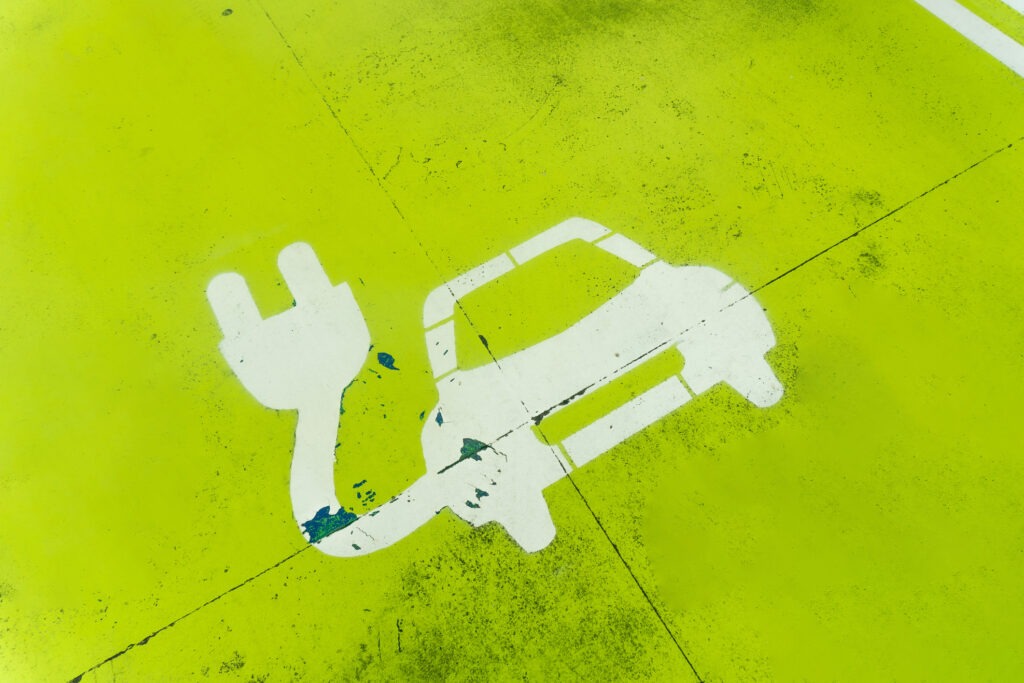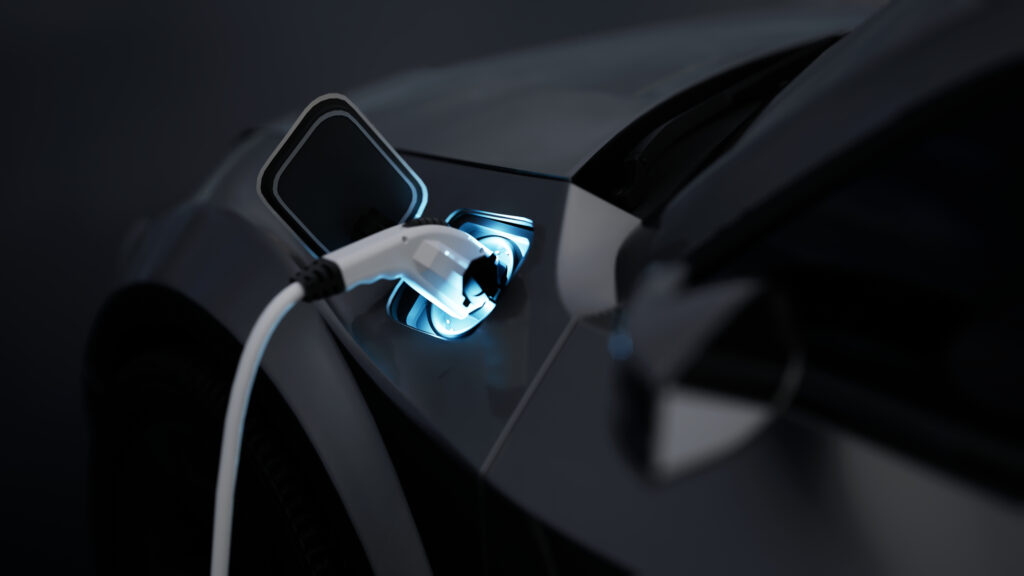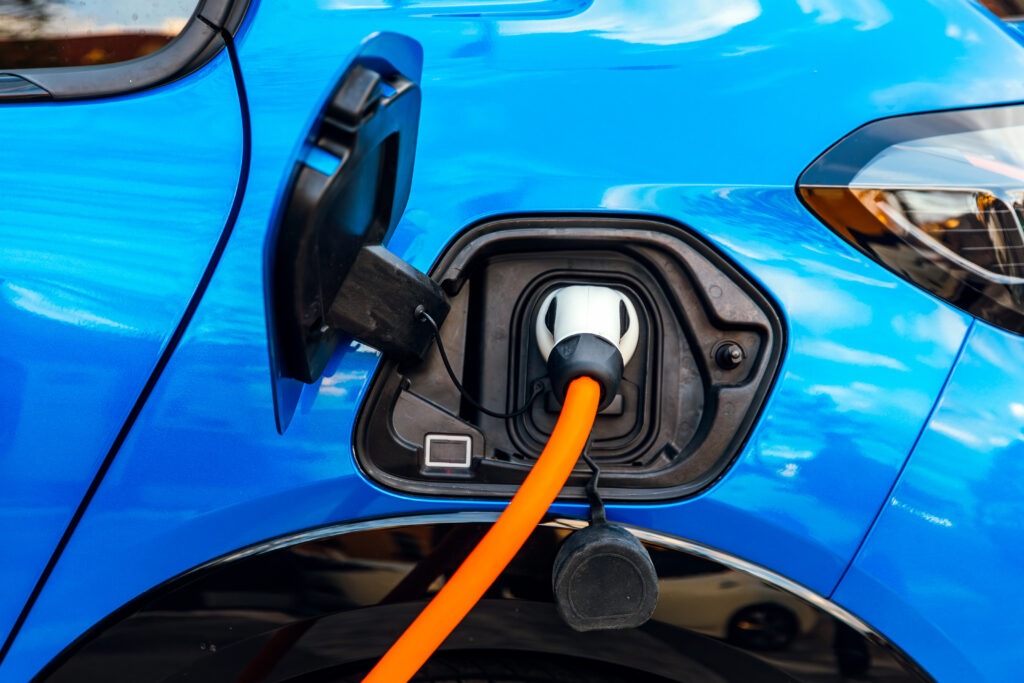What was the best-selling EV in Europe in 2024?
19 February 2025

European battery-electric vehicle (BEV) and plug-in hybrid (PHEV) registrations fell in 2024. However, each powertrain had one clear best-selling model. Tom Hooker, Autovista24 journalist, analyses the full-year results.
Compared with 2023, European BEV and PHEV deliveries declined by 1% and 3.6% respectively last year. A total of two million all-electric models took to the region’s roads last year, a loss of over 20,000 units compared to 2023. Deliveries of PHEVs reached 957,338 registrations, down 35,415 units year on year.
For BEVs, this ended a growth streak stretching over a decade to 2011 when EV Volumes records began. However, it was only the second time the technology passed the two million registration threshold in Europe.
In contrast, the PHEV powertrain suffered its third consecutive full-year decline. Last year’s European total was 94,464 units behind 2021, the technology’s best-ever performance.
BEVs recorded 207,284 deliveries in December 2024, an increase of just 0.2% compared to 12 months ago. This equated to a difference of 421 units. Meanwhile, PHEVs posted 91,173 registrations. This was a 3.7% improvement and a 3,292-unit gain year on year.
Model Y leads Europe’s BEVs
The Tesla Model Y was the best-selling BEV in Europe in 2024. This adds to the crossover’s global BEV best-sellers title which it also took in 2024. It recorded 210,504 deliveries in Europe, a drop of 17.4% or 44,426 units year on year. The Model Y took a 10.5% share of the market, down 2.1 percentage points (pp) from 2023.
For the third year in a row, the Tesla Model Y was followed by its sibling, the Model 3. It registered 113,958 units from January to December, an increase of 12.5% compared to one year ago. This was its best performance since 2021. It accounted for 5.7% of deliveries, up from 5%.
The Skoda Enyaq moved into third with 79,373 deliveries in the full year. This followed good results in September, October and November. The model’s 2024 result was a new unit record, marking a 0.8% growth compared to 2023. It made up 4% of the BEV market, improving its share by 0.1pp.
This meant the Volvo EX30 took fourth in its first full year of registrations. The SUV reached 78,154 deliveries in 2024 and finished 1,219 units behind the Skoda Enyaq. It captured 3.9% of all-electric volumes.
The Audi Q4 e-Tron landed in fifth with 69,815 registrations. This was a 0.5% growth compared to 2023 and was its best-ever full-year performance. The BEV took a 3.5% share in 2024, up from 3.4%.
VW Group fills four spots
Sixth place went to the Volkswagen (VW) ID.4 which saw volumes slump by 24.2% year on year. It recorded 63,043 deliveries, a loss of 20,145 units on the previous reporting period. It represented 3.1% of the BEV market in 2024, down 1pp.
The VW ID.3 secured seventh, reaching 55,975 registrations. This was a decline of 11.9% or 7,525 units compared to 2023. The hatchback made up 2.8% of deliveries, a drop of 0.3pp year on year. This meant VW Group placed four models in the BEV top 10.
Jumping into eighth was the BMW iX1, thanks to 53,325 registrations in 2024. This was an 18.4% surge compared to the previous year and a gain of 8,304 units. It took a 2.7% share, rising from 2.2%.
The MG4 fell to ninth, with 51,750 deliveries. The hatchback saw volumes slump 28.4% year on year, equating to a decrease of 20,574 units. The MG4 accounted for 2.6% of the BEV market, down from 3.6% in 2023.
Rounding out the top 10 was the BMW i4, recording 44,661 registrations. This was a 9.2% or 4,544-unit decline compared to 2023. The sedan captured 2.2% of deliveries, falling 0.2pp year on year. The BMW i4 narrowly beat the Mercedes-Benz EQA, which sat just 1,292 units behind in 11th.
Tesla regains European control
The Tesla Model Y was Europe’s most popular BEV in December, thanks to 28,708 deliveries. This was an increase of 14.7% compared to 12 months ago as it experienced its usual end-of-quarter peak. The all-electric model made up 13.8% of BEV registrations, ahead of its 12.1% share in 2023.
Its sibling, the Model 3, secured second. This was the first time since September 2024 that Tesla’s two best-selling models locked out the top two positions in the table.
The BEV recorded 15,339 deliveries, surging 16.7% compared to December 2023. This was the Model 3’s highest monthly volume total since June 2024. It accounted for 7.4% of the market in December, up 1pp.
The Skoda Enyaq took third, after finishing second in November and leading the market in October. The SUV registered 7,225 units in the month, a drop of 13.8% year on year and its lowest total since August 2024. It represented 3.5% of BEV deliveries, down from its 4% share during December 2023.
There was a fresh face in fourth with the combined figures of the Renault 5 and the Alpine A290. The pair recorded 6,298 registrations and a 3% share in December. Both models will be hoping to ramp up volumes further in 2025.
The Audi Q4 e-Tron finished fifth, with 6,005 deliveries. Demand for the BEV increased by 9% year on year. This gave it a 2.9% share, up from 2.7%. Sixth was secured by the VW ID.7, with a best-ever total of 5,674 registrations. This was a 719.9% jump compared with December 2023. It captured 2.7% of the market, a significant improvement of 2.4pp.
In seventh came the Volvo EX30, posting 5,591 deliveries. The SUV saw volumes surge 941.2% compared to one year ago, and took a 2.7% share, up from 0.3%.
The VW ID.4 landed in eighth with 5,497 registrations. This was a 22.8% slump compared to December 2023 and was its lowest monthly total since August 2024. It represented 2.7% of BEV deliveries, a decline of 0.7pp.
Ninth place went to the BMW iX1 with 5,435 registrations, a fall of 25.3% year on year. However, this was still its highest volume month of 2024. The SUV accounted for 2.6% of the market, down from 3.5%.
The VW ID.3 took 10th, recording 4,946 deliveries, an improvement of 6.2% compared to one year ago. The hatchback accounted for 2.4% of registrations, up from 2.3%. This was the last of five VW Group models in December’s top 10.
Volvo XC60 dominates Europe
The Volvo XC60 was Europe’s best-selling PHEV in 2024. The SUV posted 58,662 registrations, marking its highest-ever yearly total. This was a growth of 36.4% or 15,670 units year on year. It took a 6.1% market share, an increase of 1.8pp.
Second was secured by the Ford Kuga, delivering 43,958 units from January to December. This was a decline of 16.7% compared to 2023. The PHEV made up 4.6% of the market, down from 5.3%.
The Mercedes-Benz GLC took third, with 41,355 registrations. The model grew volumes by 22.3%, equating to a 7,533-unit gain on the previous reporting period. It was the SUV’s highest yearly total and gave it a 4.3% share, up 0.9pp.
In fourth came the BMW X1, reaching a record 39,289 deliveries in 2024. This was a 52.4% improvement year on year and represented an increase of 13,511 units. The BMW X1 captured 4.1% of PHEV volumes, up from 2.6%.
The Cupra Formentor finished fifth with 28,583 registrations, an increase of 8.6% from 2023. This was its best-ever yearly result. Its 3% share was a 0.3pp improvement on last year’s performance.
Changing positions
The first movement in the top 10 came in sixth. The Volvo XC90 jumped up three places from sitting in ninth in November 2024. The SUV posted 24,764 deliveries in 2024, surging 50.1% or 8,266 units compared to 2023. It was also its highest-ever yearly total. This gave the Volvo XC90 a 2.6% share, up from 1.7%.
Meanwhile, the Porsche Cayenne dropped a position to seventh, with 24,651 registrations. This was despite volumes growing 110.2% compared to one year ago, equating to a gain of 12,921 units and marking its best yearly performance. It represented 2.6% of the PHEV market, an increase of 1.4pp year on year.
In eighth came the BMW 3-Series, also falling a spot from November. The sedan reached 24,165 deliveries from January to December, declining 6.6% on the previous reporting period. The PHEV took a 2.5% share, down from 2.6%.
The Kia Sportage landed in ninth, down from eighth in the previous month. It saw 23,935 new models take to European roads, representing a 14.2% drop compared to 2023. The SUV made up 2.5% of the overall total, a drop of 0.3pp. Just 829 units separated the Volvo XC90 in sixth and the Kia Sportage in ninth.
Rounding out the top 10 was the Hyundai Tucson, which displaced the Audi A3. The model reached 22,044 registrations, falling 14.8% year on year. It took a 2.3% share, down from 2.6%.
Movement behind first
The Volvo XC60 recorded its third consecutive month leading Europe’s PHEV market in December, thanks to 6,463 deliveries. This was its best-ever result and represented a 24.1% growth compared to 12 months ago. The SUV captured 7.1% of registrations, up 1.2pp.
In second was the Mercedes-Benz GLC with 4,361 units, its best performance since December 2021. The PHEVs total increased by 14.7% compared to 12 months ago. This gave it a 4.8% share, an improvement from its 4.3% market hold from December 2023.
The BMW X1 took third, posting 4,076 deliveries, surging 66.3% year on year. The SUV accounted for 4.5% of PHEV volumes, an increase of 1.7pp. Fourth place went to the VW Tiguan, with 3,821 units. This was a 164.8% jump from one year ago. It represented 4.2% of the PHEV market, up from 1.6%.
Finishing fifth was the Volvo XC90, thanks to 3,196 registrations. Deliveries of the model rose by 46.4% from December 2023. It was also the SUV’s highest-ever monthly total. The PHEV made up 3.5% of total deliveries, an improvement from its 2.5% share from 12 months ago.
First European appearances
In sixth came the Ford Kuga. It registered 2,998 units in December, a decline of 27.5% year on year. The model captured 3.3% of the market, down 1.4pp.
Close behind was the Mitsubishi Eclipse Cross, with 2,958 deliveries, its best result since December 2022. This figure equated to a 154.3% growth compared to one year ago. The PHEV accounted for 3.2% of registrations, ahead of its 1.3% share from the previous reporting period.
The BYD Song Plus placed in eighth, the model's first appearance in Europe’s PHEV top 10. The SUV reached 2,742 units and took a market hold of 3% in December. As BYD increases its presence in the region, the Song Plus could continue to see demand grow.
Ninth went to the BMW X5, with 2,496 deliveries, improving 20.1% year on year. It represented 2.7% of total volumes, an increase of 0.3pp. The Cupra Formentor took 10th, recording 2,323 registrations. This was a 44.3% slump compared to December 2023. The PHEV made up 2.5% of the market, below its 4.7% share from one year ago.




